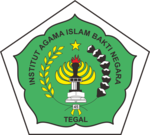Kebijakan Pelaksanaan Pendidikan SD Islam Al Azhar 38 di Era Pandemi Covid-19
DOI:
https://doi.org/10.62490/latahzan.v14i1.319Keywords:
SD Islam Al Azhar 38, Leadership Policy, Covid-19, Crisis ManagementAbstract
Changes in the teaching and learning system that were initially implemented face-to-face at each institution were implemented at home. The learning from home policy requires creativity and learning innovation by teachers so that children are able to learn meaningfully at home. Learning in elementary schools which according to cognitive theory, children are still at a concrete operational stage requires a real learning process that is carried out at home in accordance with the context of the child in the surrounding environment. Policies in the learning process at SD Islam Al Azhar 38 Bantul were formulated jointly. SD Islam Al Azhar 38 Bantul during the Covid-19 pandemic by going through three stages, namely 1) pre Crisis, 2) Response to the Crisis, 3) post Crisis. This study uses a qualitative method with a type of case study. The research results showed that the pre-crisis stage was carried out by implementing the Covid-19 Prevention Literacy policy. The stages of response to the crisis are carried out by (a) online, (b) offline, and (c) Blanded learning. In the post-crisis stage, the principal conducts an evaluation and controls the various effects of the crisis to prevent future crises. Crisis management is prepared so that schools can be more responsive in dealing with crises in reducing their impact so that the learning process and activities can continue to run effectively.
References
Agus, N. N. M., Dampak Pandemi Covid-19 Terhadap Dunia Pendidikan,(https://kabarpriangan.com/dampak-pandemicovid-19terhadap-dunia pendidikan/, diakses tanggal 25 Desember 2020)
Arifin, Zainal The Development Strategy of Muhammadiyah School in Based Conservative- NU Society, Analisa: Journal of Social Science and Religion 20 (2), (2013): 240, https://doi.org/10.18784/analisa.v20i2.179.
Arsyad, Ahmad.2005. Media Pembelajaran.Raja Grafindo Persaada.
Connolly, John. Global Crisis Leadership for Disease-Induced Threats: One Health and Urbanisation, Global Policy 11 (3), (2020): 283–92, https://doi.org/10.1111/1758-
12806
Darling, John. 1994. Crisis Management in International Business: Keys to Effective Decision Making. Leadership & Organization Development Journal (15) (8), pp. 3-8 © MCB University Press Limited, 0143-7739. Hal. (4)
Dryden,Gordon and Vos.J,.2001. Revolusi Cara belajar.Bandung:Kaifa
Gunawan, Suranti, N. M. Y. Su., & Fathoroni. 2020. Variations of Models and Learning Platforms for Prospective Teachers During the COVID-19 Pandemic Period. Indonesian Journal of Teacher Education, 1(2), 61–70.
Lahinta, A., Berbagai Model Inovasi Pembelajaran dengan dukungan Teknologi Informasi.
Prosiding APTEKINDO, 6(1), 2012, hal.9-16
Prajana, Andika.Pemanfaatan Aplikasi Whatsapp Media Pembelajaran Dala Media Pembelajaran Di Uin Ar-Raniry Banda Aceh, Jurnal Pendidikan teknologi Informasi (1), (2), 2017, hal.123
SD Islam Al Azhar 38. 2020. Parents’ Handbook. Bantul: Al Azhar Bantul
Simarmata, J. et al.,. 2020. Pendidikan Di Era Revolusi 4.0: Tuntutan, Kompetensi & Tantangan. Medan: Yayasan Kita Menulis
Soekartawi. 2005. Peran strategis E-Learning dalam mndukung pemerataan pendidikan yang berkualitas, Seminar Nasional Pemanfaatan Teknologi Informasi Berbasis Web dalam E- Learning. Medan:STMIK –Mikroskil
Worldometer. 2020. Covid-19 Corona Virus Pandemic. https://www.worldometer.info/coronavirus/
Downloads
Published
How to Cite
Issue
Section
License
Copyright (c) 2023 Fitriana

This work is licensed under a Creative Commons Attribution-ShareAlike 4.0 International License.
The copyright of the received article shall be assigned to the journal as the publisher of the journal. The intended copyright includes the right to publish the article in various forms (including reprints). The journal maintains the publishing rights to the published articles.
In line with the license, authors and any users (readers and other researchers) are allowed to share and adapt the material. In addition, the material must be given appropriate credit, provided with a link to the license, and indicated if changes were made. If authors remix, transform, or build upon the material, authors must distribute their contributions under the same license as the original.
















